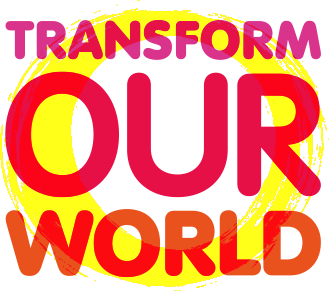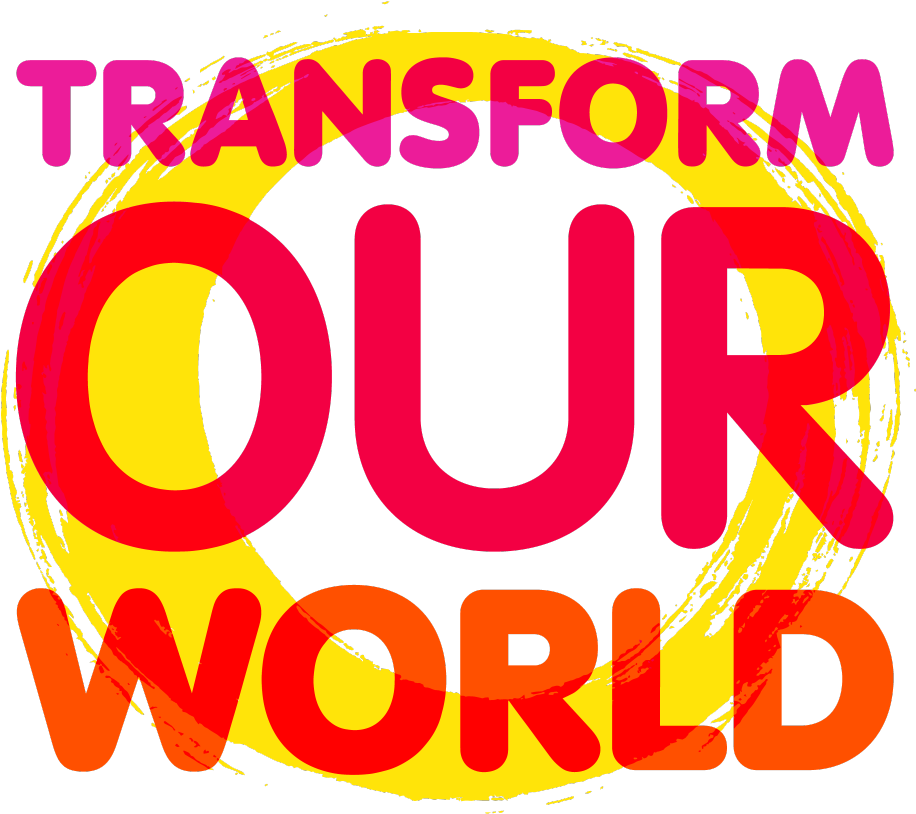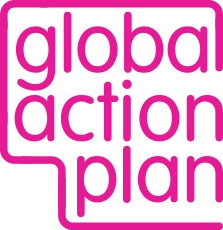What is Transform Our World?
Transform Our World is a new centralised, online hub full of free, practical resources for teachers. It helps teachers to empower young people to lead action to tackle the root causes of the climate breakdown and biodiversity loss. The hub helps educators channel the emerging excitement around climate action into schools-based activities.
Picked and rated by teachers, the resources provide opportunities for students to lead impactful projects that benefit their friends, family and local area, as well as the wider world. The resources are sourced from a range of partner organisations that are expert in inspiring young people to protect the natural world through schools programmes.
Global Action Plan has created Transform Our World as part of its pledge to the #iwill campaign. It will be a chance for teachers who are on a collective mission to connect with one another, and to encourage their whole school to get involved in youth green social action, embedding it in school life and culture.
What are the values behind Transform our World?
The values behind Transform our World are Self-Direction, Benevolence, and Universalism.
These values promote action towards better wellbeing for both people and planet.
These values are encompassed in this simple three circle logic system:
- “me” – my ability in having a positive impact though my behaviour and personal choices as a citizen (self-direction).
- “my circles” - my ability to create positive change as a member of communities of people, including close friends and family (benevolence).
- “our world” – my ability to influence things which are not currently in my control – to be an active global citizen have an impact on the planet and society (universalism)
Who funds Transform Our World?
The #iwill Fund has provided crucial match funding to develop and launch the Transform Our World hub. The #iwill Fund is made possible thanks to £50 million joint investment from The National Lottery Community Fund and the Department for Digital, Culture, Media and Sport (DCMS) to support young people to access high quality social action opportunities.
Funding for individual Global Action Plan schools programmes and resources hosted on Transform Our World has been awarded by a core group of trusts and foundations, public funds, and progressive businesses that we work with closely.
Who is the review committee?
The review committee is a core group of educators who volunteer their time to work with Transform Our World to agree, iteratively test and refine how teachers' needs are met through the site. These teachers represent schools and student needs across the country at both Primary and Secondary level. The educators in our review committee hold a variety of expertise including sustainability, carbon reduction and international development.
What does the review committee do?
The review committee assess the quality of resources suggested to go onto the Transform Our World website. Their role is to rank resources against key criteria including practical action, student leadership and impact, as well as marking age range and subject area. Resources will not go up on our website if our educator review committee do not score them highly enough (above 3 out of 5 stars overall). Our review committee occasionally support in other areas across Transform Our World including our youth-facing events and educator-facing CPD.
How are the partner resources chosen?
Potential partner resources can be put forward in a variety of ways. Those featured on the site are chosen by the review committee.
Resources can be suggested by the organisation who created the resource, by teachers who have used it, or by a member of the Transform Our World research team. Teachers in the review committee then review and rate the resources to be featured on the website.
What criteria are the resources reviewed against?
Resources and programmes on Transform Our World are rated against the following teacher-set criteria:
- Student leadership: opportunities for young people to lead (rated 0-5, where 0 is no opportunities to lead and 5 is entirely student-led).
- Sustainable Development Goals: which of the UN Sustainable Development Goals the resource or programme links to, and/or supports.
- Impact: If the resource or programme resource has measurable environmental impact (rated 0 – 5, where 0 is no impact and 5 is significant, measurable impact)
- Practical action: opportunities for practical action (rated 0 – 5, where 0 is no opportunities for practical action and 5 is entirely practical).
Further, teachers assess how easy, practical and effective a resource is by considering the following categories of information:
- Clear age range
- Links to subjects
- Links to the National Curriculum/Exam Syllabus/ other educational frameworks
- Links to Fundamental British Values
- Differentiation
- Development of soft skills
- Offering practical activities
- Covering local and/or global perspectives
- Providing whole school engagement opportunities
- Is free at point of access
- Is fully-resourced
- What is meant by measurable impact?
Measurable Impact means whether the resource or programme provides the opportunity to measure environmental or social impact from the activities it provides e.g. carbon savings; number of water-saving devices installed.
- What is meant by practical action?
Practical action means whether the resource or programme provides the students with effective ways to achieve its aim through real life activities e.g. taking part in a tree-planting event.
- What is meant by youth led?
Youth led means whether or not the resource or programme allows students to take the lead on the activities with little/no adult support.
The Sustainable Development Goals (SDGs), otherwise known as the Global Goals, are a universal call to action to end poverty, protect the planet and ensure that all people enjoy peace and prosperity. The development of the goals was a multi-year process, building on the Millennium Development Goals, and involving civil society, governments, the private sector and academia. On 25 September 2015, the 193 countries of the UN General Assembly adopted the 17 goals as part of a wider 2030 Agenda for Sustainable Development.
Through Transform Our World's international platform, we hope to inspire a generation of young people to take action to work towards the SDGs, and to equip them with the skills to do so.
If you would like further information about introducing the SDGs into your lessons and the benefits to your students, school and the wider world, please take a look at 'The Sustainable Development Goals: A Teacher's Guide', provided by Oxfam. You can also read our guide 'Getting started with the SDGs' for an introduction to relevant hand-picked resources that are currently hosted on Transform Our World.
Goal 1: No Poverty
Eradicate poverty and create a world where anyone can
afford to meet their basic human needs.
Goal 2: Zero Hunger
End hunger, achieve food security and improved nutrition and promote sustainable agriculture.
Goal 3: Good Health and Well-Being
Ensure healthy lives and promote well-being for all at all ages.
Goal 4: Quality Education
Provide an inclusive and quality education and promote lifelong learning opportunities for all.
Goal 5: Gender Equality
Achieve gender equality and empower all women and girls.
Goal 6: Clean Water and Sanitation
Ensure availability and sustainable management of water and sanitation for all.
Goal 7: Affordable and Clean Energy
Provide the access to clean and affordable electricity for all people.
Goal 8: Decent Work and Economic Growth
Create sustained economic growth by encouraging entrepreneurship
and innovation.
Goal 9: Industry, Innovation, and Infrastructure
Build resilient infrastructure by promoting sustainable industrialization and
innovation.
Goal 10: Reduced Inequalities
Reduce income inequality within and among countries.
Goal 11: Sustainable Cities and Communities
Make cities and human settlements inclusive, safe, resilient and sustainable.
Goal 12: Responsible Consumption and Production
Establish sustainable consumption and production patterns.
Goal 13: Climate Action
Take urgent action to combat climate change by regulating emissions and promoting developments in renewable energy.
Goal 14: Life Below Water
Conserve and sustainably use the oceans, seas and marine resources for sustainable development.
Goal 15: Life On Land
Protect, restore and promote sustainable use of terrestrial ecosystem, reverse land degradation, and halt biodiversity loss.
Goal 16: Peace, Justice, and Strong Institutions
Ensure that the instituitions who govern peace and justice are reliable and work to unite us.
Goal 17: Partnerships For The Goals
Strengthen the means of implementation and revitalize the global partnership for sustainable development.
What are featured resources?
Featured resources are themed areas of activity, interest and information. Each list includes a collection of impactful, low prep resources, to help your students lead that crucial action.
What are top resources?
Our top resources cover a broad range of learning and action themes, including 'Values and Wellbeing', and the United Nations' 'Sustainable Development Goals' (SDGs). These collections contain carefully selected and highest rated resources chosen by teachers.
What are programmes?
The programmes create spaces in education to empower young people to take the lead in climate action. With the help of our partner organisations, our featured programmes tackle different topics while incorporating the Transform our World values. In the process, young people are able to engage with the community and natural world around them.
This is an additional way that Transform our World is helping educators bring topics surrounding climate change and the environment into the classroom. The programmes are tailored to work over a longer period of time to help students implement the changes they want to see.
You can browse our showcase programmes which are particularly highly recommended by teachers and our partners for use across the wider school community.
What are case studies?
Case studies are real-life stories of young people leading action all over the UK to stop the collapse of life’s support systems.
I'm a teacher, how do I get started?
With 17 different goals making up the SDGs, you might be asking yourself 'Where do I begin?'. Our guide, 'Getting started with the SDGs' provides an ideal starting point for anyone who is unfamiliar with the SDGs and wants to begin exploring the diverse range of curriculum-linked, low prep, teacher-reviewed resources hosted on the Transform Our World hub.
You will be introduced to seven varied resources, starting with a general introduction to the SDGs and then demonstrating the links between the SDGs and topics that you will already be familiar with: biodiversity, energy, food, water, waste and air pollution.
All the resources listed have been hand-picked to provide you with a fun and interactive starting point to introduce your students to the SDGs. The resources are ordered from requiring the least time commitment to needing more time to
complete, but feel free to use any one resource or a combination of resources in any order that suits you.
Can Transform Our World be used by non-teachers?
Absolutely! Transform Our World and its resources are adaptable for use by youth group leaders and educators in a range of contexts.
I am having difficulties using the website, how can I get help?
If you need any support with the website or have any questions, please contact the team using the contact form at the bottom of the page or emailing us on [email protected].
What are the different types of Partners needed for Transform Our World?
- Opportunity providers: These are organisations with expertise and opportunities – programmes, activities - to support teachers and students to lead environmental change. They are core catalysts powering the environmental movement and have content, events, experiences, tools and routes to action that are showcased to teachers through Transform Our World.
Opportunity Providers include: environmental charities, youth-facing organisations, content publishers and providers of training or CPD that equip teachers to better lead environmental action
- Mission Supporters: These are organisations with large youth educator audiences or memberships who recognise the importance of teachers and youth leaders supporting young people to lead environmental action. Mission Supporters play a critical role in the movement by sharing opportunities offered through Transform our World to their networks of educators.
Supporters include: teacher unions, vocational accreditation bodies, trade press, local authorities, and multi-academy trusts.
- Core Funders: These are organisations and individuals who share the belief that we must help young people to demand and drive a better future for people and planet. Core funders contribute financial and in-kind resources to help expand the impact and reach of Transform Our World.
Core Funders include: Trusts and foundations, lottery funds, high net worth individuals and private organisations that meet Global Action Plan’s environmental criteria.
- Reach Enablers: In order to create maximum impact, we’ll be contracting regionally-based organisations after launch to deliver particular programme activities and/or to support schools in hard-to-reach areas or with specific delivery needs – such as language barriers.
Contact
If you would like to know more about Transform Our World, or any of our programmes, please get in touch.
Thank you for submitting your enquiry! We are currently receiving a large number of enquiries and are trying our best to get back to people as soon as possible. In the meantime, you might find one of the following links helpful:
Access catch up content from the Transform Our World Youth Summit
As a Transform Our World user, you can access the content from the Transform Our World Youth Summit and catch up on the content across three themed days, looking at individual actions we can do, people in power we can influence and the importance of living our true values.
Follow the links below and check out the timestamp guide to navigate the content.
- Are you a teacher? Learn about how to use the website here.
- Looking for teaching resources? You can find our collection of highly-rated resources here.
- Looking for something more long-term? Check out our featured programmes here.
- Want to see what other schools have been up to? Have a read of some case studies here.
- Alternatively, take a look at our FAQs and About pages as they might help to answer your question(s).
All the best,
The Transform Our World team

is brought to you by


